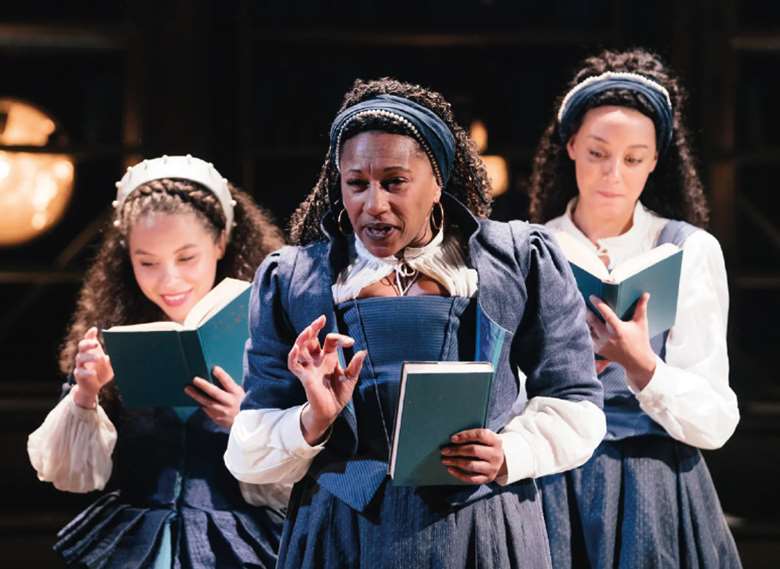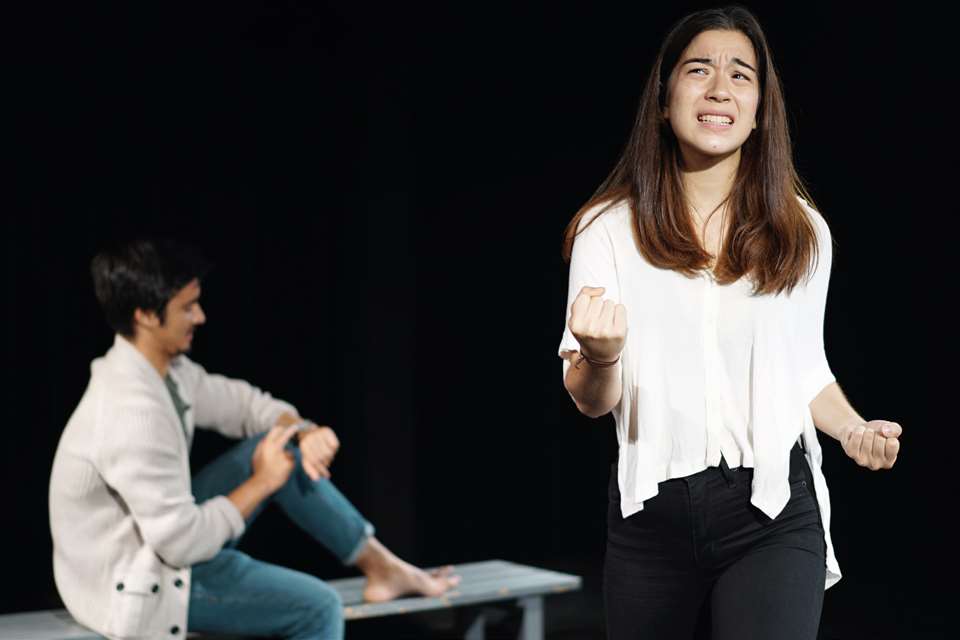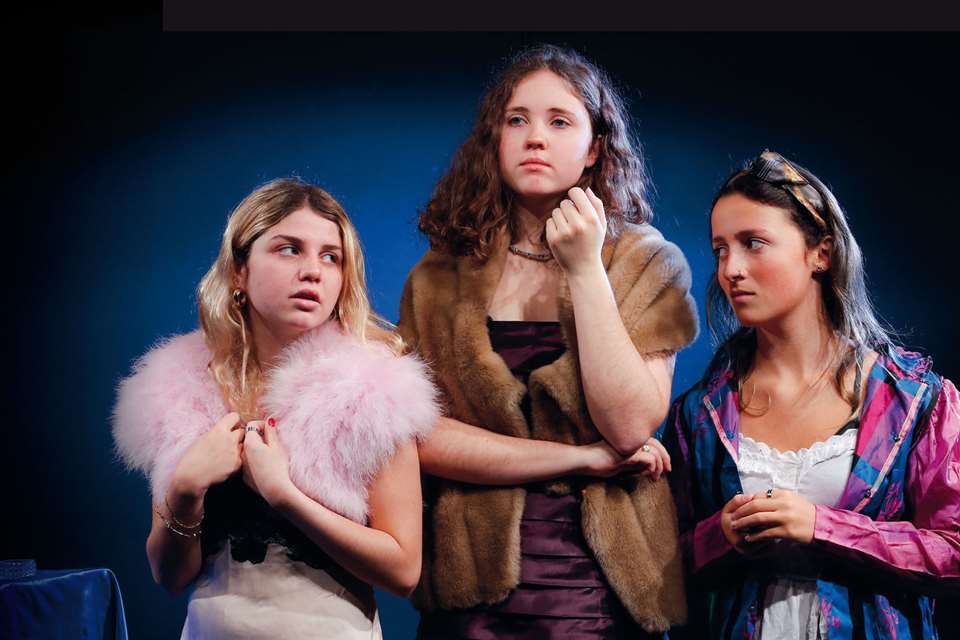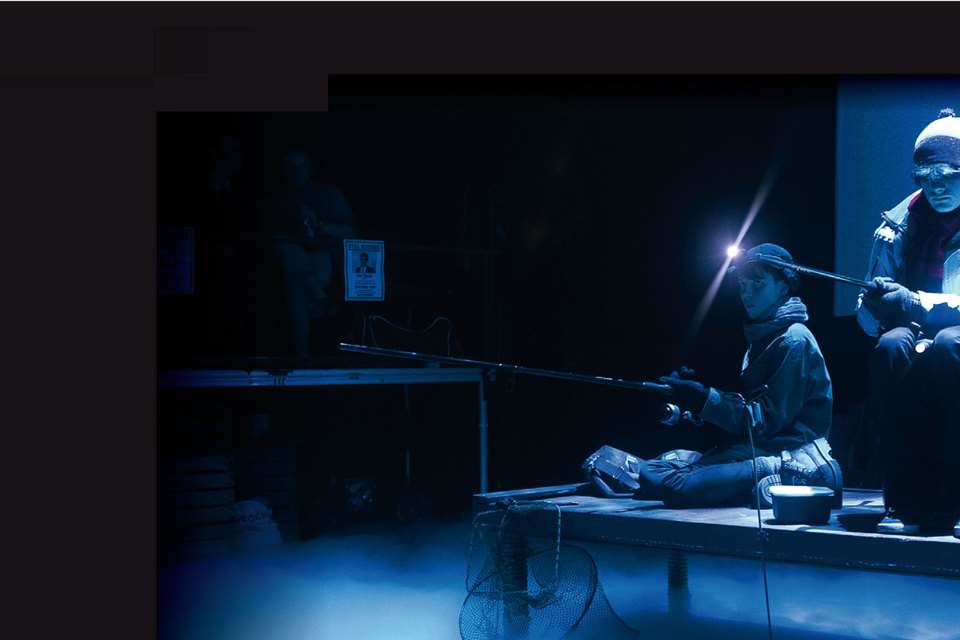Emilia: Play for study
Morgan Lloyd Malcolm, Elizabeth Schafer
Friday, December 1, 2023
In each issue of D&T, we bring you a teacher or academic's guide to a play for study with your students. Here, Elizabeth Schafer introduces Emilia.

Helen Murray ELEN MURRAY
Background and plot
Emilia offers a rambunctious, feminist, funny, inclusive, Brechtian gallop through the life of a remarkable and pioneering historical woman, Emilia Lanier (1569–1645). Playwright, Morgan Lloyd Malcolm, takes audiences on a rollercoaster through Lanyer's life journey which includes love affairs, the loss of a child, resilience in the face of repeated bereavements and, in a pioneering achievement, becoming the first woman to publish her poetry under her own name in English in 1611.
The play celebrates women working together when the odds are against them and has fun with the claim that Emilia Lanier was the Dark Lady of Shakespeare's Sonnets; Lloyd Malcolm cheekily makes Emilia the author of some of Shakespeare's famous lines. First performed at Shakespeare's Globe in 2018, in the wake of the #MeToo movement, this fiery play inspired the predominantly young female audiences to applaud Emilia, encouraging them to challenge conventions and, if they encounter obstacles, to ‘burn the whole fucking house down’.
Themes
Questions around intersectionality abound in this play; Emilia is disadvantaged by sex, class and ethnicity. Lloyd Malcolm asks for the three performers who represent the three Emilias to be cast as black, which enhances Emilia's claim to be the ‘Dark Lady’. But the play invites anyone in the audience who feels disadvantaged, marginalised or ostracised to be resilient when society will not let them flourish artistically.
History and the making of history are major themes. Emilia is a ‘history play’ in the sense that it is inspired by history, but the play addresses many of today's concerns by adapting, transforming and appropriating history. Lloyd Malcolm is asking questions about cultural memory, who is remembered and who is not, and how theatre makers might remember in an activist way, reviving what has been forgotten, telling histories that give a voice to those who have traditionally been marginalised. Emilia demands audiences listen to her story, connecting with musicals like Hamilton and Six (with a hint of Horrible Histories).
Another thematic concern in Emilia is the sense of belonging. Emilia struggles to find a place where she feels at home in terms of culture, class and gender. Others ask her ‘Where are you from’ seeing her as ‘exotic’ even though she was born in London. Emilia's determination to acquire an education, something most women in the early modern period were denied, enables her to mix with powerful courtiers, but she also bonds with the Bankside washer women who save her from despair. In this sequence the issue of language, how we must speak if we want to avoid punishment, comes into focus.
In performance
Emilia was commissioned for Shakespeare's Globe, a stage that encourages a presentational, anti-illusionistic performance style like the exuberant anti-realism of Emilia. The following year Emilia was revived at the Vaudeville Theatre in London's West End. In both productions the cast was all-female and diverse. A revival in Auckland, New Zealand, reimagined the casting with Emilia becoming Māori, something that created extra emphasis on the issues of disenfranchisement and the suppression of cultural heritage. Similarly, in the Australian premiere one of the Emilias was of Aboriginal and Torres Strait Islander descent, which again raised questions about who is listened to and whose stories are told.
Exploring the play
Emilia is intensely theatrical and needs to be explored practically. The play's many Brechtian qualities make it ideal for investigating Brecht's theatre practices and its grounding in ‘history’ makes it ideal for ‘fact’ checking projects. Hunter gathering across the internet, searching for ‘Emilia’ can pose useful questions about evaluating the trustworthiness of sources.
My students have applied an Emilia-style approach to other marginalised figures taken from history, literature, and the plays they have been studying. For any students studying Othello for A Level, Emilia poses provocative questions about agency, the representation of women, and, in its claim that the character named ‘Emilia’ is based on Emilia Lanier, responsible authorship.
Resources and links
-
The Methuen Drama Student Edition of Emilia (ed. Elizabeth Schafer, 2023) contains a useful introduction, chronology, notes on the play (especially the historical characters), and some samples of Emilia's poetry.
-
The Globe, where the play was first staged, created an education pack and their website contains interviews with the original cast at shakespearesglobe.com.
-
Notelets of Filth: An Emilia Companion Reader (Routledge, 2023) eds. Kressly, Patient, and Williams, with a foreword by Morgan Lloyd Malcolm, consists of a large number of short and accessible essays informed by feminist, critical race, queer, and intersectional analyses and includes several explorations of Emilia as a teaching text.








